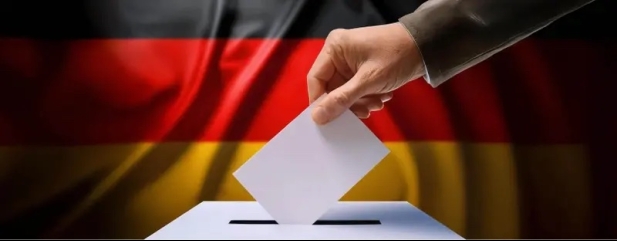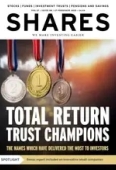Archived article
Please note that tax, investment, pension and ISA rules can change and the information and any views contained in this article may now be inaccurate.
German election result promises continuity as the centre holds

The outcome of last weekend’s German elections wasn’t just a matter for Germans – as the largest economy in Europe, and the third-largest in the world, the result will ‘set the tone for the whole continent from security and defence to technology policy to relations with China,’ as Bloomberg’s Alan Crawford put it.
In the event, the centrist CDU/CSU gathered enough votes to form a slim parliamentary majority in coalition with the much-weakened social-democrat SPD, meaning the country will be run by same parties which have dominated politics more or less for the last 25 years, albeit with a slight twist.
Although the far-right AfD doubled its vote from the 2021 elections, it fell short of expectations, as did the far-left parties, some of whom failed to meet the 5% threshold needed to take a seat in parliament, suggesting voters weren’t looking for radical change but more of a return to the past.
The CDU’s Friedrich Merz, who will take over from the SPD’s Olaf Scholz as chancellor, undoubtedly has a difficult job ahead of him, not just in terms of the struggling economy but in terms of Germany’s relationship with the US.
President Donald Trump has repeatedly criticised Europe for its trade surplus with the US, including imports of German cars, and recent developments mean the calculus in terms of European security has shifted too.
As the biggest NATO spender after the US in dollar terms, Germany’s approach will determine how Europe deals with any potential Russian threat.
Merz is already on the front foot, though, saying within hours of the polls closing he would have a coalition government in place by Easter – which is later than usual this year – and his priority is to achieve European ‘independence’ from the US.
The news sent shares in Germany and the rest of Europe higher, as well as lifting the euro which has been on a small run against the dollar since the start of the year.
The CDU leader also promised economic reforms to revitalise growth, and analysts have predicted a significant increase in government spending, but given AfD and Die Linke (The Left) will control almost 30% of the seats in the new Bundestag – enough to form a blocking minority – there is little chance of Merz being able to engineer changes to the ‘debt brake’ which limits government spending.
Berenberg economist Holger Schmieding observed: ‘Merz could be a chancellor with little fiscal space.’
Important information:
These articles are provided by Shares magazine which is published by AJ Bell Media, a part of AJ Bell. Shares is not written by AJ Bell.
Shares is provided for your general information and use and is not a personal recommendation to invest. It is not intended to be relied upon by you in making or not making any investment decisions. The investments referred to in these articles will not be suitable for all investors. If in doubt please seek appropriate independent financial advice.
Investors acting on the information in these articles do so at their own risk and AJ Bell Media and its staff do not accept liability for losses suffered by investors as a result of their investment decisions.
Issue contents
Feature
Great Ideas
News
- Rentokil has a long way to go to catch up with US peer Rollins
- Centrica shares hit fresh 12-month high despite normalised trading
- German election result promises continuity as the centre holds
- Why Brown-Forman investors are in need of a stiff drink
- No easy way back for embattled B&M
- Buffett keeps his powder dry as Berkshire Hathaway’s cash pile tops record $134 billion
- Glencore slips to multi-year lows on weak coal price as it mulls London exit
 magazine
magazine








